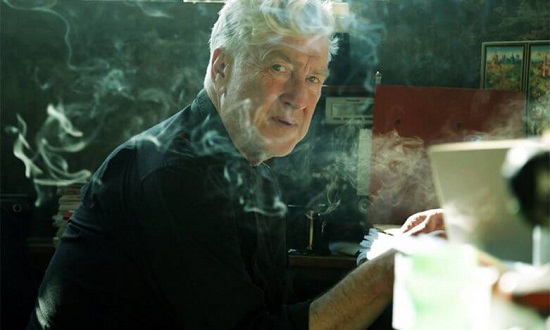No one can truly understand what makes a genius in his or her craft; you either have it or you don’t. Lynch has it, but can he explain it? He gives it a darn good go in this new documentary from Jon Nguyen, Rick Barnes and Olivia Neegaard-Holm. Since 2006, Nguyen had wanted Lynch to sit down and open up about his past, his craft and what inspires him, and in 2012, after the birth of Lynch’s youngest daughter, persistence paid off and the bequiffed auteur agreed to do a full interview, across three years. The result is a film that’s more a memoir for his daughter than a showy, celebrity-adorned, clip-filled race through the Lynch back catalogue. As he does with his own films, Lynch dictates the narrative here, and he chose to focus on his work as a gothic-style painter, rather than the moving pictures he’s mostly known for. Sure, there are well-chosen film clips and Lynch’s music appears on the soundtrack, but at the heart of the film is his art, and his measured responses to (off-camera) questions about his formative years. Cue mood lighting, crumbling walls and curls of smoke as Lynch’s soft, trademark drawl welcomes us into the suburbia of his brain for the next 89 minutes.
David Lynch studied art at the Academy of Fine Arts in Boston before earning a place at the Pennsylvania Academy of Fine Arts in the 1960s, so it’s no surprise that most of this documentary is shot in his artist studio high up in the Hollywood Hills – it’s where he seems most at home. In an interview at BFI Southbank in 2016, Nguyen told the audience that he could barely tear Lynch away from this place, and, perhaps worried that film would look too samey and needed more cutaways, tried to get him to do something else that he might naturally do. The most Lynch could stretch to was making a cup of tea, and he somehow manages to make even this mundane domestic act look profound and intriguing (it’s a damn fine cup of tea). At one point we even glimpse Lynch’s young daughter tottering around, playing at his feet, seemingly as at home in a studio as her father.
“I think every time you do something, like a painting or whatever, you go with
ideas and sometimes the past can conjure those ideas and colour them, even if they’re new ideas, the past colours them,” says Lynch. And as he reveals his past to us, we begin to see where he draws his palette from. It’s clear that he found his suburban childhood a pleasant time, full of fascinating vignettes, but there’s a moment – and you can see it in his face that this was a pivotal event – where he recounts an ‘incident’ on the lawn outside his house involving a collapsed neighbour. He never quite reveals what happened but, according to Nguyen, that memory brought Lynch close to tears. Lynch credits a weathered and decaying Philadelphia, where he lived in digs as an art student, as inspiration for his aesthetic. He highlights the competitiveness between his artist peers as a driving force to achieve, and recalls various mentors and patrons who spurred him on to create in the first place.
His mixed-media artworks, like his films, are tinged with darkness and violence, usually depicting a distorted figure alongside handwritten, almost child-like words. It’s widely known that Lynch is a fan of Francis Bacon, and you can see a common thread. It begs the question that, if Lynch had such a nice, wholesome upbringing, nurturing mentors, respect from his peers and subsequent Hollywood success and riches, where does this wellspring of macabre melancholy come from? It’s a question that only Lynch can answer, and it seems he only touches on it in this intimate documentary, he holds back. But sometimes the joy is in the mystery.
David Lynch: The Art Life is released on 14 July
The new series of Twin Peaks has started on Sky Atlantic


